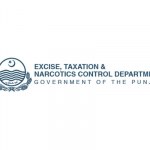WASHINGTON – Florida led the nation in mortgage fraud in 2007, a dubious distinction it\’s had two years running.
The competition to be first in fraud is getting stiffer as the housing downturn persists and agencies nationwide report more suspect mortgages, according to industry data released Thursday.
Nevada ranked second in mortgage fraud, up from No. 6 a year earlier in the Mortgage Asset Research Institute\’s annual report on fraudulent mortgage activity. It was followed by Michigan, California, Utah and Georgia. Virginia made its debut on the report\’s top 10 list, coming in at No. 7.
The report, released at a Mortgage Bankers Association conference in Chicago, did not detail the exact number of fraud cases by state or nationwide. Instead, the group calculated a \”fraud index\” by comparing fraud reports with the number of home loans made in each state.
It cited FBI statistics showing 46,700 mortgage fraud reports in 2007, a more than 30 percent increase from the year before and twice as many than in 2000. Federally insured lenders are required to report fraud to the government.
The report came from an industrywide database that includes information about fraud and fraud allegations collected from approximately 700 mortgage companies ranging from finance giants Fannie Mae and Freddie Mac to midsize lenders.
Merle Sharick, a vice president with ChoicePoint Inc., which owns the Mortgage Asset Research Institute, said fraud has become more evident now that the industry is examining loans in foreclosure and default. \”When times are good and the market is roaring, fraud is not as evident,\” he said.
Sharick also noted that the industry has traditionally worried more about organized schemes to defraud lenders, rather than borrowers misrepresenting their income. But now, with property values falling \”a lot more instances\” of fraud committed by borrowers who were simply stretching to buy bigger homes and are now stuck with properties they can\’t afford.
Mortgage fraud has represented about $1 billion in losses over the past decade, the Mortgage Bankers Association said.
Common kinds of mortgage fraud include misrepresentations of income, employment history, and falsified tax returns or financial statements .
David Kittle, chairman of the mortgage bankers\’ group and chief executive of Principle Wholesale Lending in Louisville, Ky., said the industry does not blame borrowers alone for committing fraud. He said real estate agents, mortgage brokers, builders and lenders all share responsibility for a climate of lax standards that has now ended.
\”There\’s enough responsibility to go around to everybody,\” he said in a conference call with reporters.
The Mortgage Bankers Association is calling for more than $31 million over the next five years in new funding for the FBI and Justice Department to fight mortgage fraud, money that would go to new investigators and prosecutors.






